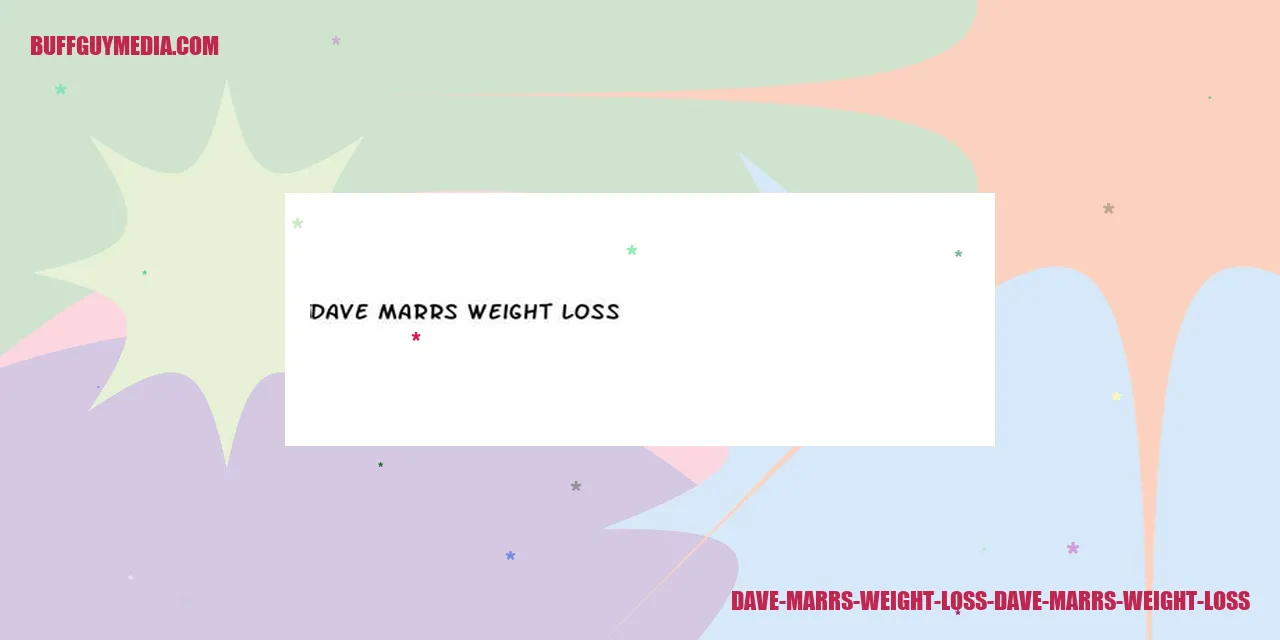Unveiling the Impact of Coke on Your Diet Plan
Is Coke Effective for Weight Loss?
The Benefits of Coke for Weight Loss
When it comes to shedding extra pounds, individuals often prioritize consuming healthier beverages and reducing their intake of sugary drinks. Surprisingly, recent studies have suggested that Coke, an immensely popular carbonated beverage, might have unexpected advantages for those aiming for weight loss. To comprehend the potential effectiveness of Coke in this regard, it is essential to explore the underlying factors that contribute to its weight loss benefits.
Coke vs. Other Drinks for Weight Loss
To determine the impact of Coke on weight loss, it is crucial to differentiate between regular Coke and its sugar-free alternatives. Sugar-free variants of Coke contain fewer calories, making them a preferable choice for those watching their calorie intake. By eliminating sugar, these beverages allow individuals to consume fewer unnecessary calories without compromising on the refreshing taste that Coke is renowned for. Thus, for individuals concerned about managing their weight, opting for sugar-free Coke can serve as a viable alternative to other high-calorie beverages.
The Science behind Coke and Weight Loss
The main reason why Coke has the potential to aid weight loss is its ability to suppress hunger. The carbonation and sweetness of Coke create a sensation of satiety, reducing cravings and the tendency to overeat. This effect can be attributed to the presence of caffeine and phosphoric acid in Coke, both of which have demonstrated appetite-suppressing properties in various studies. While the long-term effects of this mechanism are not fully understood, individuals consuming Coke have reported short-term benefits such as reduced snacking and increased feelings of fullness.
Nevertheless, it is important to note that while Coke may offer some benefits for weight loss, it should not be perceived as a miraculous solution. The most effective approach to weight loss involves adopting a balanced diet, engaging in regular exercise, and making overall healthy lifestyle choices. Additionally, excessive consumption of Coke, particularly the sugary versions, can lead to other health issues, including tooth decay and an increased risk of chronic diseases.
In conclusion, although it may seem counterintuitive, Coke can play a role in weight loss endeavors. The key lies in selecting sugar-free variants and consuming them in moderation alongside a comprehensive weight loss plan. It is always advisable to consult with healthcare professionals or nutritionists before making significant changes to one’s diet or lifestyle.

Integrating Coke into Your Dietary Regimen
Coke as an Optimal Choice for a Low-Calorie Beverage
In the realm of dieting, choosing the right beverage plays a vital role in achieving your weight loss goals. Many individuals assume that they must bid farewell to their beloved carbonated drink, Coke, in order to progress on their weight loss journey. However, it is indeed possible to incorporate Coke into your dietary plan with a few strategic selections. Remarkably, Coke offers a myriad of low-calorie alternatives that can assist you on this quest.
Guidelines for Effective Inclusion of Coke in a Well-Balanced Diet
[[READMORE]]
If you aspire to include Coke in your diet while sustaining a harmonious nourishment regimen, a few recommendations warrant your consideration. Primarily, gravitate towards the diet or zero-calorie versions of Coke, as they possess significantly fewer calories compared to regular Coke. Furthermore, exercising portion control is paramount. Abide by a reasonable portion of Coke and guard against unconsciously sipping it incessantly throughout the day. Lastly, remain mindful of the accompanying food and beverage choices so as not to surpass your daily calorie threshold.
Coke and the Significance of Portion Control for Effective Weight Management
Portion control manifests as a pivotal aspect of fruitful weight management, encompassing all that we ingest, including beverages like Coke. By implementing control over the quantity of Coke integrated into your dietary plan, you can still luxuriate in its gratifying flavor without jeopardizing your weight loss endeavors. Remember, prudence in moderation is the crux.
To conclude, while Coke may not rank as the most health-conscious beverage choice, it can still be seamlessly infused into your diet plan when consumed moderately and accompanied by calculated considerations of your calorie intake. Through opting for low-calorie alternatives, exercising portion control, and maintaining a balanced nourishment regimen, you can occasionally relish the delight of Coke without sabotaging your aspirations for shedding weight.
Also read:
Transformation: Sydney Simpson’s Weight Loss Journey
Audrey and Mariah Weight Gain: Exploring their Journey to Better Health

Coke and Exercise: Exploring the Connection
Maximizing Your Workout with Coke
When it comes to optimizing your exercise routine, there is ongoing debate about what to consume before hitting the gym. While water is the go-to choice for hydration, some individuals opt for Coca-Cola as a pre-workout drink. The caffeine content in Coke can provide a temporary energy boost, potentially enhancing endurance and reducing fatigue during physical activity. However, it is crucial to consume Coke in moderation, as excessive sugar intake can have detrimental effects on health.
Coke as a Recovery Aid after Exercise
Proper recovery after exercise is essential for muscle repair and growth. While sports drinks are commonly recommended to replenish fluids and electrolytes, Coca-Cola is considered by some as an alternative option. The simple carbohydrates in Coke can help replenish glycogen stores and provide a quick source of energy post-workout. Additionally, the carbonation in Coke may assist in relieving muscle soreness. However, it is important to note that Coke should not replace water or other healthier choices when it comes to post-workout recovery.
Exploring Coke as a Weight Loss Companion
The potential link between Coca-Cola and weight loss has intrigued many individuals striving to shed extra pounds. While Coke can be a low-calorie beverage, relying solely on it for weight loss is not recommended. The most effective approach to achieving weight loss goals remains a combination of regular exercise and a balanced diet. Incorporating Coke in moderation as an occasional treat can still be part of a healthy lifestyle, but it should not be viewed as a miraculous solution for weight management.
Coke vs. Sports Drinks for Optimal Hydration
Hydration is crucial for maximizing performance and preventing dehydration during exercise. Although Coca-Cola contains water and can temporarily quench thirst, sports drinks are generally more suitable for hydration purposes. Sports drinks are specifically formulated to replenish electrolytes lost through sweat, making them more effective in restoring fluids and maintaining electrolyte balance during prolonged and intense workouts. Therefore, it is recommended to prioritize sports drinks over Coke when it comes to maintaining adequate hydration levels during exercise.
Can Coca-Cola Enhance Your Metabolism for Effective Weight Loss?

The Impact of Coca-Cola on Metabolism
When it comes to shedding pounds, understanding how different beverages affect our metabolic rate is crucial. Coca-Cola, being a widely consumed carbonated beverage, has garnered attention in relation to its impact on metabolism. Metabolism refers to the body’s natural calorie-burning process while at rest, which plays a vital role in weight management.
Coca-Cola as a Stimulating Beverage
Some researchers argue that Coca-Cola possesses thermogenic properties, resulting in increased energy expenditure and elevated body heat production. This is believed to be associated with the presence of caffeine in Coca-Cola, which acts as a stimulant and may potentially boost metabolism.
The Influence of Coca-Cola on Fat Burning
The relationship between Coca-Cola and fat burning is multifaceted. While certain studies suggest that the caffeine found in Coca-Cola can potentially enhance fat oxidation, others counter-argue that the high sugar content present in the beverage may neutralize any potential benefits. Moreover, excessive consumption of Coca-Cola can lead to weight gain due to its overall calorie content.
Can Coca-Cola Truly Enhance Metabolism for Weight Loss?
It’s essential to recognize that relying solely on Coca-Cola as a weight loss solution is not recommended. Although the caffeine in Coca-Cola may temporarily increase metabolism, the effects are typically minimal and short-lived. Sustainable weight loss is achieved through a combination of balanced nutrition, regular physical activity, and the adoption of healthy lifestyle habits.
In conclusion, while Coca-Cola may have some influence on metabolism, it should not be perceived as a miracle beverage for achieving weight loss goals. Practicing moderation and consuming Coca-Cola mindfully, in addition to embracing an overall healthy lifestyle, are crucial factors for attaining and sustaining weight loss success.

Understanding the Sugar Levels in Coke
Effective Sugar Intake Management while Consuming Coke
Coke, a widely favored beverage globally, is admired for its refreshing flavor. Nevertheless, it is crucial to comprehend its high sugar content and maintain a mindful approach towards consumption. Every can of Coke contains approximately 39 grams of sugar, which is equivalent to around 9.75 teaspoons. Consuming excessive amounts of sugar can have adverse effects on overall health and well-being.
Sugar-Free Alternatives for Individuals Focusing on Weight Management
For individuals who are weight-conscious or striving to reduce sugar consumption, there are sugar-free options available as alternatives to regular Coke. Manufacturers now offer Coke Zero, which contains zero grams of sugar, or Diet Coke, which utilizes artificial sweeteners instead. These sugar-free alternatives provide a similar taste experience without the added calories and sugar content.
The Relationship between Coke and Blood Sugar Regulation
Individuals with diabetes or those concerned about maintaining steady blood sugar levels must be cautious when consuming Coke. The high sugar content in regular Coke can cause a sudden surge in blood sugar levels, which can be problematic for individuals with diabetes. It is advisable for these individuals to opt for sugar-free alternatives or consume Coke in moderation while keeping the overall sugar intake in check.
In conclusion, comprehending the sugar levels in Coke plays a pivotal role in effectively managing our overall sugar intake. For individuals focused on weight management, sugar-free options like Coke Zero or Diet Coke can serve as viable alternatives. For those with diabetes or concerned about blood sugar control, moderation is key. By being aware of these factors, we can make informed decisions regarding our beverage consumption, fostering a balanced and healthy lifestyle.

The Surprising Benefits of Coke in Suppressing Appetite
How Coke Can Aid in Appetite Suppression
Soft beverages, such as Coke, have long been associated with indulgence and pleasure. However, recent studies indicate that Coke may possess unexpected advantages when it comes to suppressing one’s appetite. Research has found that the carbonation in Coke creates a sense of fullness, thereby reducing hunger pangs.
Using Coke as a Solution for Curbing Food Cravings
Cravings for unhealthy foods can often hinder our weight loss journey. Fortunately, Coke can be a valuable tool in curbing these cravings. The combination of caffeine and sugar in Coke stimulates the release of dopamine, a neurotransmitter associated with pleasure and reward, thereby helping to satisfy cravings and prevent overindulgence.
Coke as an Effective Aid for Portion Control
Coke can serve as an effective aid in portion control, particularly when consumed before a meal. The carbonation and sugar content in Coke create a sense of fullness, leading to a decreased appetite and ultimately smaller portion sizes. By strategically incorporating Coke into their routine, individuals can better manage their calorie intake and maintain a healthy weight.
Coke and Its Impact on Satiety
Satiety, or the feeling of fullness and satisfaction after a meal, plays a crucial role in weight management. Coke, with its distinct carbonation and taste, can enhance the feeling of satiety. This can result in reduced hunger, minimized snacking between meals, and greater overall satisfaction with smaller portions.
In conclusion, while many perceive soft drinks like Coke as obstacles to weight loss, scientific evidence suggests that when used strategically, Coke can be a valuable ally. By harnessing its carbonation, sugar content, and unique taste, individuals can potentially utilize the appetite-suppressing properties of Coke to support their weight loss efforts and maintain a healthier lifestyle.

Understanding the Nutritional Value of Coke and Its Role in a Well-Balanced Diet
The Nutritional Composition of Coke
Coca-Cola, widely known as Coke, is a carbonated beverage that has gained immense popularity worldwide. While commonly associated with its high sugar and calorie content, Coke still offers some nutritional value. A standard 12-ounce can of Coke contains approximately 140 calories, 39 grams of sugar, and contains no fat or protein.
Incorporating Coke into a Healthy Diet Plan
Including Coke as part of a balanced diet is possible, provided it is consumed in moderation due to its high sugar content. Enjoying Coke occasionally or combining it with healthier food choices can help maintain a well-rounded eating plan. For instance, having Coke alongside a nutritious meal that includes lean proteins, whole grains, and abundant fruits and vegetables can contribute to a balanced diet.
Coke as a Source of Essential Nutrients
Although Coke isn’t a significant source of essential nutrients, it does contain trace amounts of certain vitamins and minerals. A can of Coke offers minuscule amounts of calcium, magnesium, phosphorus, and potassium. However, it’s important to note that these nutrients are found in higher quantities in other foods that form a comprehensive and diverse diet.
Coke in Relation to Balanced Nutrition for Weight Management
Incorporating Coke into a well-balanced and calorie-controlled diet can be feasible for weight management purposes. Enjoying Coke occasionally while being mindful of overall calorie consumption and engaging in regular physical activity holds significance. It is advisable to choose sugar-free or low-calorie variations of Coke to align with weight management goals.
In conclusion, Coke can have a place in a balanced diet if consumed in moderation and as part of an overall healthy eating plan. It is essential to consider the nutritional value of Coke and its impact on calorie and sugar intake. By incorporating Coke wisely and making informed dietary choices, it is possible to enjoy this popular beverage while maintaining a well-rounded and nutritious diet.

The Role of Coke in a Healthy Lifestyle
How Incorporating Coke Can Support Sustainable Weight Loss
When embarking on a journey to shed extra pounds, individuals often assume that they must completely eliminate indulgences such as carbonated beverages. However, research indicates that including Coke in moderation can actually aid in sustainable weight loss. By making thoughtful choices and integrating Coke into a well-rounded diet plan, individuals can still enjoy their favorite drink while achieving their weight loss objectives.
Incorporating Coke into an Active Lifestyle
Leading an active lifestyle not only improves physical health but also enhances overall well-being. Contrary to popular belief, Coke can be a suitable and refreshing option for individuals seeking hydration during exercise. With its carbonation and taste, Coke can enhance the workout experience and help maintain proper hydration levels. When consumed in moderation, Coke can be a convenient and enjoyable choice for those living active lives.
Coke and the Maintenance of Long-Term Weight
Sustaining weight loss can be a challenge for many individuals. However, by implementing the right strategies, including Coke can actually be a beneficial element in long-term weight maintenance. Consistency and moderation are crucial. By incorporating Coke as an occasional treat within an overall balanced diet, individuals can avoid feelings of deprivation and ensure a sustainable approach to keeping the pounds off.
Making Healthier Choices while Savoring Coke
Opting for healthier alternatives when enjoying Coke is vital for maintaining a healthy lifestyle. Pairing Coke with fresh, whole foods or choosing sugar-free or zero-calorie options can help individuals make smarter choices while still relishing their favorite beverage. It is important to be mindful of portion sizes and balance Coke consumption with nutrient-rich foods to maximize the health benefits.
In conclusion, incorporating Coke into a healthy lifestyle is indeed attainable. By understanding its role in facilitating sustainable weight loss, fitting into an active lifestyle, supporting long-term weight maintenance, and making healthier choices, individuals can continue to indulge in the taste and experience of Coke without compromising their well-being.

Examining the Potential Dangers of Consuming Coke
Regulating Coke Consumption for the Sake of Health
It is widely acknowledged that Coke and other sugary soft drinks can have detrimental effects on our overall well-being. The high sugar content found in Coke can contribute to weight gain, obesity, and an increased susceptibility to chronic conditions like type 2 diabetes, cardiovascular disease, and certain types of cancer. As a result, it is essential that we control the amount of Coke we consume to minimize the associated risks.
The Adverse Impact of Coke on Oral Health
Regular consumption of Coke can also prove detrimental to our oral health. The elevated levels of sugar and acidity in Coke can erode tooth enamel, leading to the development of cavities and tooth decay. The carbonation present in Coke can also contribute to enamel erosion. Moreover, the dark pigment in Coke can stain our teeth, negatively affecting their appearance and potentially reducing our self-confidence and social interactions.
The Overall Well-Being Consequences of Consuming Coke
In addition to its detrimental effects on weight, chronic diseases, and oral health, excessive consumption of Coke can significantly impact our overall well-being. The high sugar content in Coke can result in energy crashes, mood swings, and diminished focus and concentration. Additionally, excessive intake of Coke can displace more nutritious beverages from our diets, depriving our bodies of the essential vitamins and minerals required for maintaining optimal health.
To conclude, it is imperative that we comprehend the potential risks associated with consuming Coke. By regulating our intake, we can mitigate its negative impact on our health. Prioritizing good oral hygiene, ensuring overall well-being, and making informed decisions regarding our beverage choices are crucial steps towards leading a healthier lifestyle.

Frequently Asked Questions about Coke and Weight Loss
Is Coke alone effective for weight loss?
While Coca-Cola is a popular beverage, it is not a magic solution for weight loss. Consuming Coke alone will not lead to significant weight loss. Coke contains high levels of sugar and calories, which can actually contribute to weight gain if consumed excessively. To achieve weight loss, a balanced diet and regular exercise are key.
What is the recommended amount of Coke if I want to lose weight?
When aiming to lose weight, it is recommended to minimize the consumption of sugary drinks like Coke. The American Heart Association suggests consuming no more than nine teaspoons (36 grams) of added sugar per day for men, and six teaspoons (25 grams) for women. Occasional consumption of Coke can be included in a well-balanced diet, but moderation is crucial for weight loss goals.
Are there any potential negative effects of using Coke for weight loss?
Coke itself does not possess any specific weight loss properties. However, excessive consumption of Coke can have adverse effects on your health. Regular intake of sugary beverages like Coke can increase the risk of obesity, diabetes, and other chronic conditions. Furthermore, the acidity of Coke can damage tooth enamel if consumed excessively.
Should I exercise while consuming Coke for weight loss?
Exercise plays a vital role in weight loss. While reducing the consumption of high-calorie beverages like Coke is important, pairing it with regular physical activity can enhance weight loss efforts and overall well-being. Engaging in exercise helps burn calories, build muscle, and boost metabolism.
Can I substitute regular Coke with diet Coke for weight loss?
Diet Coke is a low-calorie alternative to regular Coke as it contains artificial sweeteners instead of sugar. However, it is important to note that the long-term effects of artificial sweeteners are still under investigation. While diet Coke may assist in reducing calorie intake, it should be consumed in moderation and not solely relied upon for weight loss.
Is it possible to drink Coke and still achieve my weight loss goals?
Occasional consumption of Coke as part of a well-balanced diet and active lifestyle may not necessarily impede weight loss goals. However, excessive consumption of sugary beverages like Coke can lead to weight gain and other health issues. Opting for healthier alternatives such as water, herbal tea, or fruit-infused drinks is generally recommended.
How does Coke compare to other weight loss products available on the market?
Coke is not specifically formulated as a weight loss product. It is a carbonated beverage containing sugar and calories. There are numerous weight loss products in the market that are specifically designed to support weight loss through various mechanisms, such as appetite suppression or fat burning. When considering using these products, it is important to exercise caution and ideally seek guidance from a healthcare professional.









